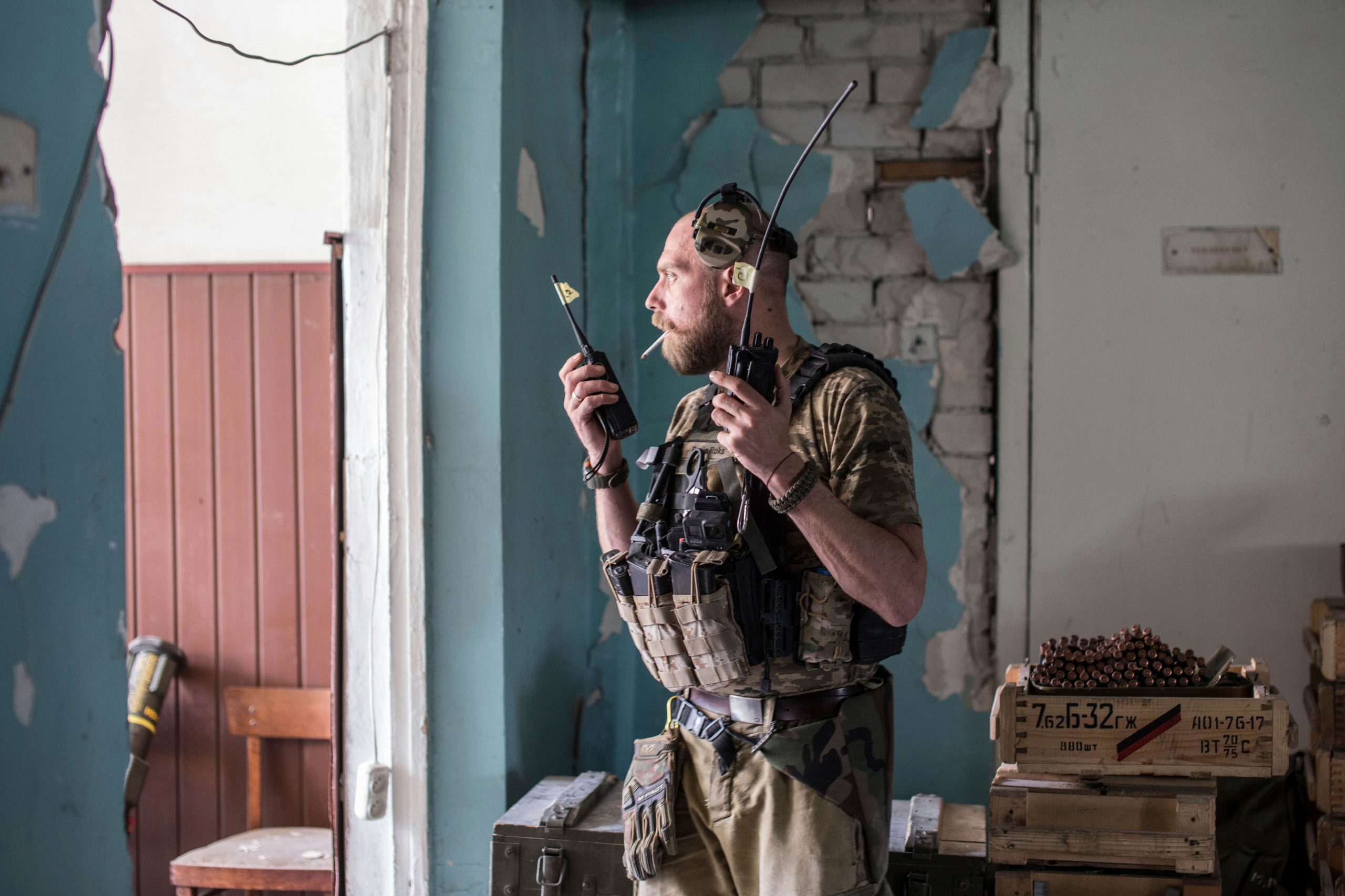The loss of the southern town of Severodonetsk is significantly more crucial and symbolic to Russia than to Ukraine, according to military specialists.
After weeks of combat, Ukrainian soldiers abandoned the town in the Luhansk area on Friday.
“Keeping positions smashed to pieces over many months just for the sake of staying there doesn’t make sense,” Serhiy Haidai, regional governor, stated on television.
Also read: Which city should be Russia’s first target during WWIII? Putin’s ally suggests
Heavy Russian bombing has destroyed almost every Ukrainian defence position in the area, but the loss of the nearly-destroyed town is inconsequential, according to a leading military analyst.
“It’s a minor loss, there’s still Lysychansk [the neighboring town controlled by Ukraine], and Severodonetsk has largely served its purpose,” former deputy chief of Ukraine’s general staff, Ihor Romanenko, told Al Jazeera.
The Kremlin is celebrating the takeover of Severodonetsk since it was one of the few Ukrainian-controlled towns in Luhansk, one of Ukraine’s smallest and poorest regions, which was partially overrun by pro-Russian rebels in 2014.
“There is a geopolitical component for Russians, it’s a district centre in the unoccupied part of Luhansk. But we will live through it, we are more interested in the military aspect,” Romanenko said.
Also read: Why Russia removed Polish flag from Soviet massacre memorial
According to Romanenko, the alleged Russian triumph in Luhansk was so vital to Moscow that it ordered the transfer of its troops from the seized southern province of Kherson and the partially occupied Zaporizhzhia, where Ukrainian forces are regaining territory.
Both Western and Russian analysts concur with him.
“The loss of Severodonetsk is a loss for Ukraine in the sense that any terrain captured by Russian forces is a loss – but the battle of Severodonetsk will not be a decisive Russian victory,” the Institute for War, a US research organisation that has been closely tracking the war since it began exactly four months ago, on February 24, came to this conclusion.
Two months of intensive battle also destroyed Russian forces in Severodonetsk, which had a pre-war population of roughly 100,000 people.
“Ukraine has ground down a significant mass of Russian troops and retreated,” according to Pavel Luzin, a Russian-based analyst with the Jamestown Foundation, a Washington, DC-based think organisation.
Also read: Severodonetsk could fall to Russia as Ukraine mulls troop withdrawal
According to some commentators, Moscow’s long-term prospects in the war do not appear promising due to significant losses and demoralised troops, as well as Western sanctions that impede the development of high-precision weaponry.
“Time works against Russia [because] its military potential is largely irreplaceable,” he said.
Severodonetsk is located on the Siversky Donets river, which the Russians have attempted unsuccessfully to bridge multiple times, incurring severe losses in personnel and armoured vehicles.
Russia’s dominance in artillery was one of the reasons Severodonetsk succumbed.
Moscow has bombarded Ukrainian troops and residential areas with multiple rocket launchers, bombers, and even obsolete Tochka U cruise missiles.
“Aviation is working. Tochka Us are working. A whole set of artillery. They are advancing in all directions,” in televised remarks on Friday, Roman Vlasenko of the Severodonetsk government remarked.
Also read: Spotlight-hungry JK Rowling trolled by Russian comedians posing as Zelensky
However, a seizure of the entire Luhansk region, which appears near with the likely fall of Lysychansk, will not result in the triumph desired by Russian President Vladimir Putin.
Russian troops failed to conquer Kyiv and northern Ukraine months ago, losing thousands of troops as well as hundreds of tanks and armoured vehicles after being accused of war crimes against civilians.
They receded in early April, and Putin stated that Russia will concentrate its efforts on seizing the Donbas region, which encompasses Luhansk and Donetsk.
However, Ukrainian forces still hold at least two-fifths of Donetsk, a much larger and more populous region.
Since the separatists seized a third of Donetsk in 2014, they have erected massive defence sites there, and retaking them will be far more difficult than retaking Luhansk.
Meanwhile, the economic ramifications of losing all of Luhansk are minor.
Since 2014, the separatists have controlled the industrial heart of Luhansk, which includes numerous of industries, power stations, and coal mines, while the Kyiv-held portion is primarily farmland.
Also read: Why Zelensky wants to replace Ukraine’s top spy
The only industrial clusters there were the chemical and cellulose plants that had been taken over in early May at Severodonetsk, Lysychansk, and the town of Rubizhne.
According to Kyiv-based analyst Aleksey Kushch, the factories nearly shut down due to violence and a moving front line.
“The economic effect is minuscule,” he explained to Al Jazeera.
Mariupol’s loss, which served as the administrative centre of the Ukrainian-controlled part of Donetsk, was far more significant, he said, because the city was a vital seaport and had two massive steel plants that accounted for a sizable portion of Ukraine’s steel output.
Meanwhile, the battle for Severodonetsk demonstrated that Ukrainian forces might soon attain parity with Russian troops, as Moscow loses reserves, morale, and reliable equipment.
“They are exhausted,” Russian military specialist Romanenko stated.
Also read: Ukraine won Eurovision 2022 but won’t host song contest in 2023: Here’s why
As Ukraine reorganised its forces in the aftermath of the defeat, the Kremlin continued its roundly derided narrative that modern Europe is analogous to Nazi Germany under Adolf Hitler.
“When World War II was about to begin, Hitler gathered a significant part, if not most of the European nations, for a war against the USSR,” Sergey Lavrov, Russia’s foreign minister, stated on Friday. “These days, the European Union together with NATO are gathering a modern-day coalition to wage a war on the Russian Federation.”






